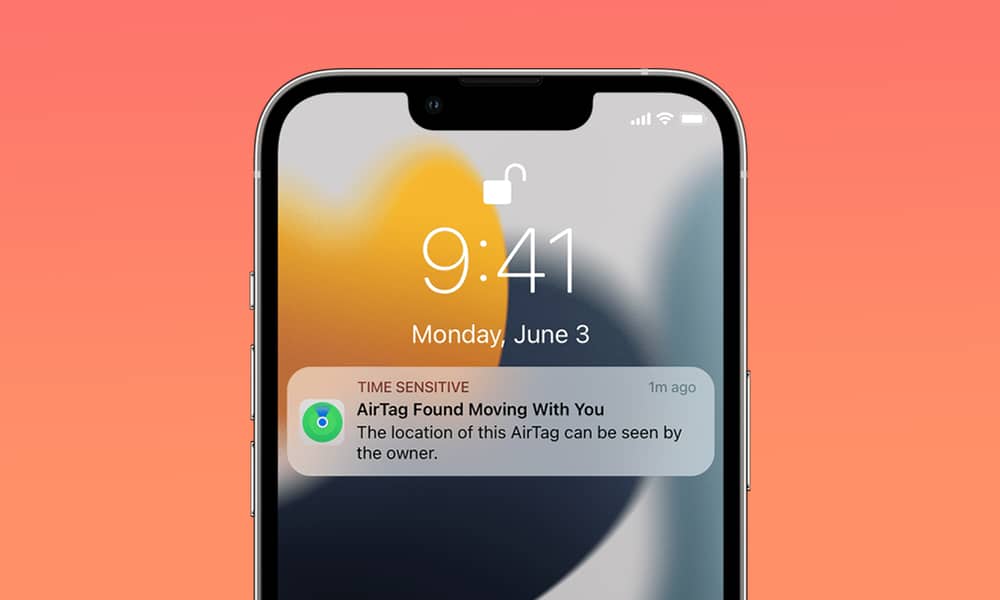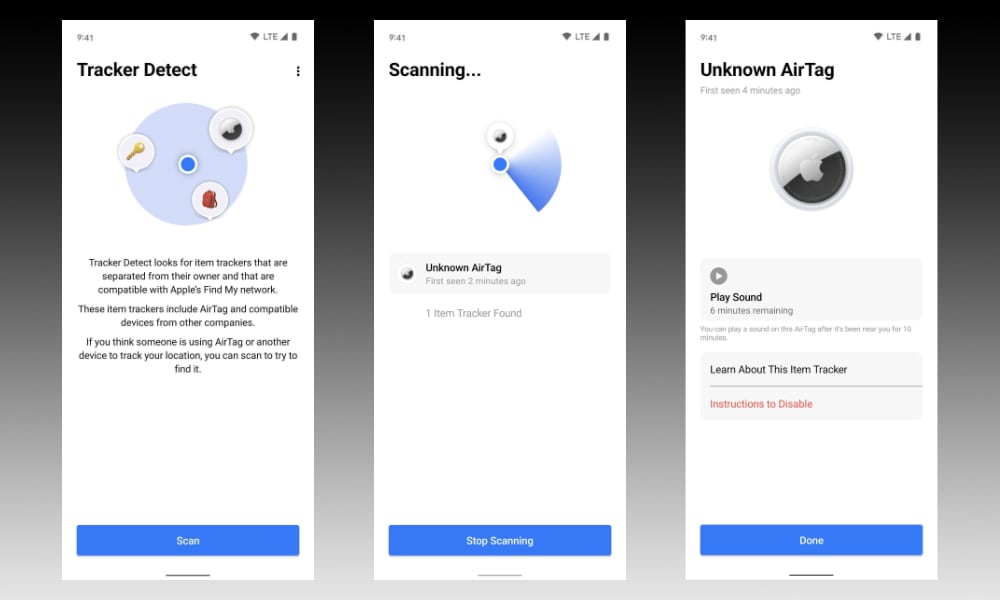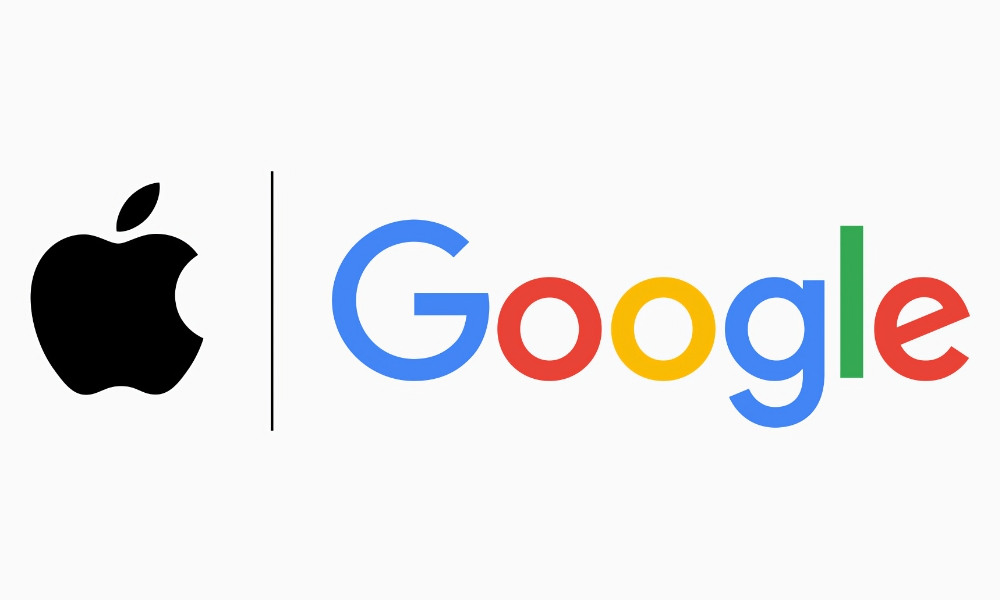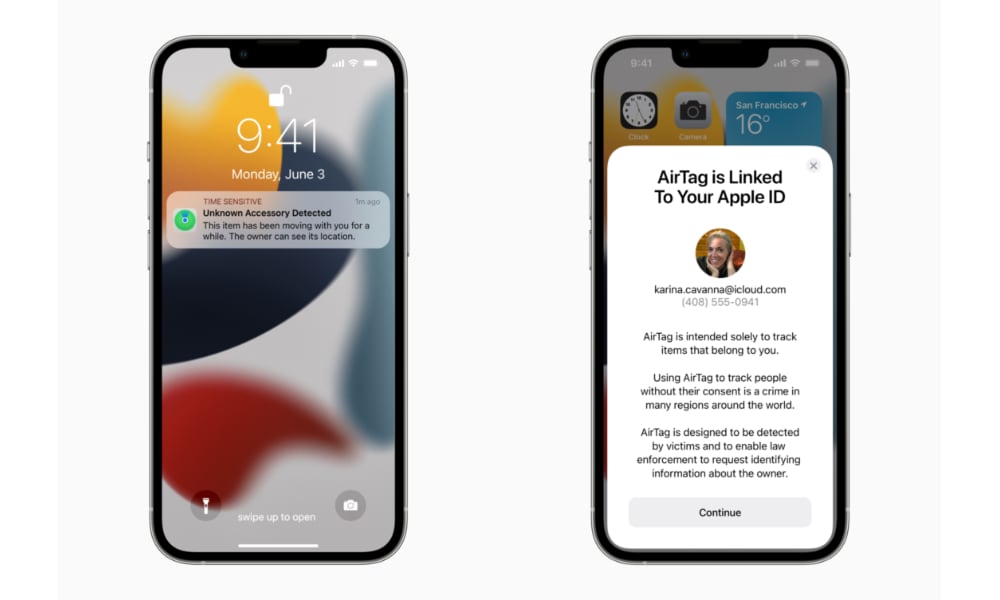Now that COVID is Over, Apple and Google’s Second Big Partnership Will Address Unwanted Tracking
 Credit: Apple
Credit: AppleToggle Dark Mode
Three years ago, as the COVID-19 pandemic was raging on with no end in sight, Apple and Google announced a landmark partnership to create an Exposure Notification System to help fight the novel coronavirus. Now, the two tech giants are once again joining forces to battle an even more insidious problem: ensuring smartphone users know when they’re being tracked without their knowledge.
Even though personal item trackers have been around for nearly a decade, it wasn’t until Apple came along with its AirTags in 2021 that any company thought to build in safety features to prevent its tags from being used for nefarious purposes. Apple’s AirTags launched with several features to ensure you’d know if one was following you around, and when domestic safety advocates raised concerns that these weren’t enough, Apple worked to make them even better.
Unfortunately, even though Apple wanted to be as diligent as possible in protecting potential victims, there was only so much it could do on its own. One of the biggest complaints was that people being followed by an unknown AirTag would only receive alerts if they were toting an iPhone; Android users were left with no recourse except to wait for an audible alert that could take up to three days to sound.
Apple later reduced the time window for this alert to as little as eight hours in a firmware update and released a Tracker Detect app on the Google Play Store that would allow folks with Android devices to scan for nearby “orphaned” AirTags — those without their paired iPhone nearby.
However, unlike folks with an iPhone, who would be proactively notified if an unknown AirTag was found moving around with them, Android users had to install the Tracker Detect app and then open it and manually scan for nearby AirTags. It’s not a bad solution for those who have reason to fear they might be tracked, such as victims of domestic violence or those leaving a club late at night, but it does very little for situations where somebody might be a victim of a random stalker.
Building In Protection at the Core
Thankfully, Apple and Google have once again come together to solve this problem — and not just for AirTags.
While some advocates had called on Google to integrate AirTag alerts into its Android operating system, that doesn’t solve the larger problem. AirTags have gotten a great deal of press because of Apple’s popularity, but they’re not the only game in town, and studies have shown there are far more insidious trackers.
Last year, Eva Galperin, director of cybersecurity for the Electronic Frontier Foundation (EFF), called out Apple’s “blind spot” in excluding those outside the Apple ecosystem. While Galperin commended Apple for the measures it’s taken, she emphasized that more needs to be done, not just by Apple but by the industry as a whole, which needs to come up with a standard for all trackers that can be universally implemented across all mobile device operating systems.
Apple and Google have heeded this advice and are rising to the occasion. In the new partnership announced today, the companies have committed to creating a new industry-wide standard “to help combat the misuse of Bluetooth location-tracking devices for unwanted tracking.”
The two tech giants have jointly submitted a proposed specification to the Internet Engineering Task Force (IETC), opening the floor for input and comment from all interested parties, from other tech companies to advocacy groups. Apple notes that several other companies that make Bluetooth tracking devices have already “expressed support for the draft specification,” including Samsung, Tile, Chipolo, eufy Security, and Pebblebee, and that “input from various safety and advocacy groups has been integrated into the development of the specification.”
Erica Olsen, the senior director of the Safety Net Project for the National Network to End Domestic Violence (NNEDV) — the organization that first critiqued Apple for not consulting advocacy groups when AirTags were first released — lauded the move, noting that “These new standards will minimize opportunities for abuse of this technology and decrease the burden on survivors in detecting unwanted trackers.”
Today marks a significant first step in what will be a longer road, but the two companies want to make sure they get it right this time by ensuring every stakeholder gets input into the proposed standard. Apple and Google hope to release a production implementation of the spec by the end of 2023 “that will then be supported in future versions of iOS and Android.” That likely means that, if everything goes according to plan, these important safety features will arrive in early 2024 point releases of iOS 17 and Android 14.









